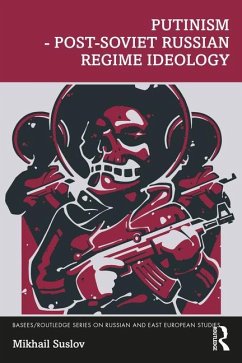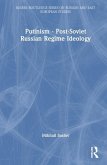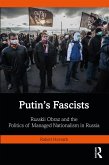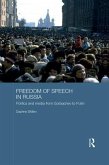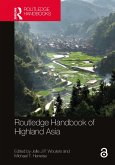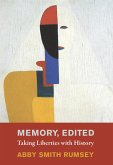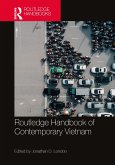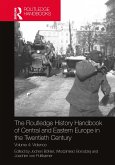A key question for the contemporary world: What is Putin's ideology? This book analyses this ideology, which it terms "Putinism". It examines a range of factors that feed into the ideology - conservative thought in Russia from the nineteenth century onwards, Russian and Soviet history and their memorialisation, Russian Orthodox religion and its political connections, a focus on traditional values, and Russia's sense of itself as a unique civilisation, different from the West and due a special, respected place in the world. The book highlights that although the resulting ideology lacks coherence and universalism comparable to that of Soviet-era Marxism-Leninism, it is nevertheless effective in aligning the population to the regime and is flexible and applicable in different circumstances. And that therefore it is not attached to Putin as a person, is likely to outlive him, and is potentially appealing elsewhere in the world outside Russia, especially to countries that feel belittled by the West and let down by the West's failure to resolve problems of global injustice and inequality.
"With this book, Mikhail Suslov joins the swollen ranks of Russia-watchers who for nearly two decades have endeavoured to identify and describe that most slippery of subjects, namely Putinism as an ideology. Suslov however takes a novel approach. Avoiding an overly exclusive focus on the persona of Putin himself, the author rather directs his attention to a number of more general contemporary perspectives in Russia-conservatism, nationalism, geo-politics, and religion-and shows how a Putinist ideology takes shape through its complex intersections with each of these. A historian of ideas rather than a political scientist, Suslov brings an unusual skill-set to his analysis, and he offers a series of compelling insights into the contemporary relevance of debates about Russian politics and identity that date back to the nineteenth century. Putinism - Post-Soviet Russian Regime Ideology is not only a work of impressive erudition and originality: it is precisely what is needed today to help us more fully comprehend the destructive ideological energies that drive Putin's politics, both within Russia and beyond."
Mark Bassin, Research Professor, Södertörn University and Research Director, Institute for Russian and Eurasian Studies, Uppsala University, Sweden
"Putinism - Post-Soviet Russian Regime Ideology offers the first comprehensive assessment of Putinism as an ideology. In this long-awaited analysis, Mikhail Suslov proposes a nuanced and in-depth exploration of the different conceptual, historical, and institutional layers of constitutive Putinist ideology that brings precious insights to both scholars and policy experts."
Marlene Laruelle, Director, Illiberalism Studies Program and Director, Russia Program, The George Washington University, Washington, USA
"Suslov's monograph will become the standard work on the emerging ideology of Putinism. The book is a brilliant exposition of the different strands of political thought that have contributed to contemporary Putinism. Suslov's deep scholarship makes a convincing case that Putinism is a genuine ideology, which might even outlive Putin himself."
David Lewis, Professor of Politics, University of Exeter, UK
Mark Bassin, Research Professor, Södertörn University and Research Director, Institute for Russian and Eurasian Studies, Uppsala University, Sweden
"Putinism - Post-Soviet Russian Regime Ideology offers the first comprehensive assessment of Putinism as an ideology. In this long-awaited analysis, Mikhail Suslov proposes a nuanced and in-depth exploration of the different conceptual, historical, and institutional layers of constitutive Putinist ideology that brings precious insights to both scholars and policy experts."
Marlene Laruelle, Director, Illiberalism Studies Program and Director, Russia Program, The George Washington University, Washington, USA
"Suslov's monograph will become the standard work on the emerging ideology of Putinism. The book is a brilliant exposition of the different strands of political thought that have contributed to contemporary Putinism. Suslov's deep scholarship makes a convincing case that Putinism is a genuine ideology, which might even outlive Putin himself."
David Lewis, Professor of Politics, University of Exeter, UK

